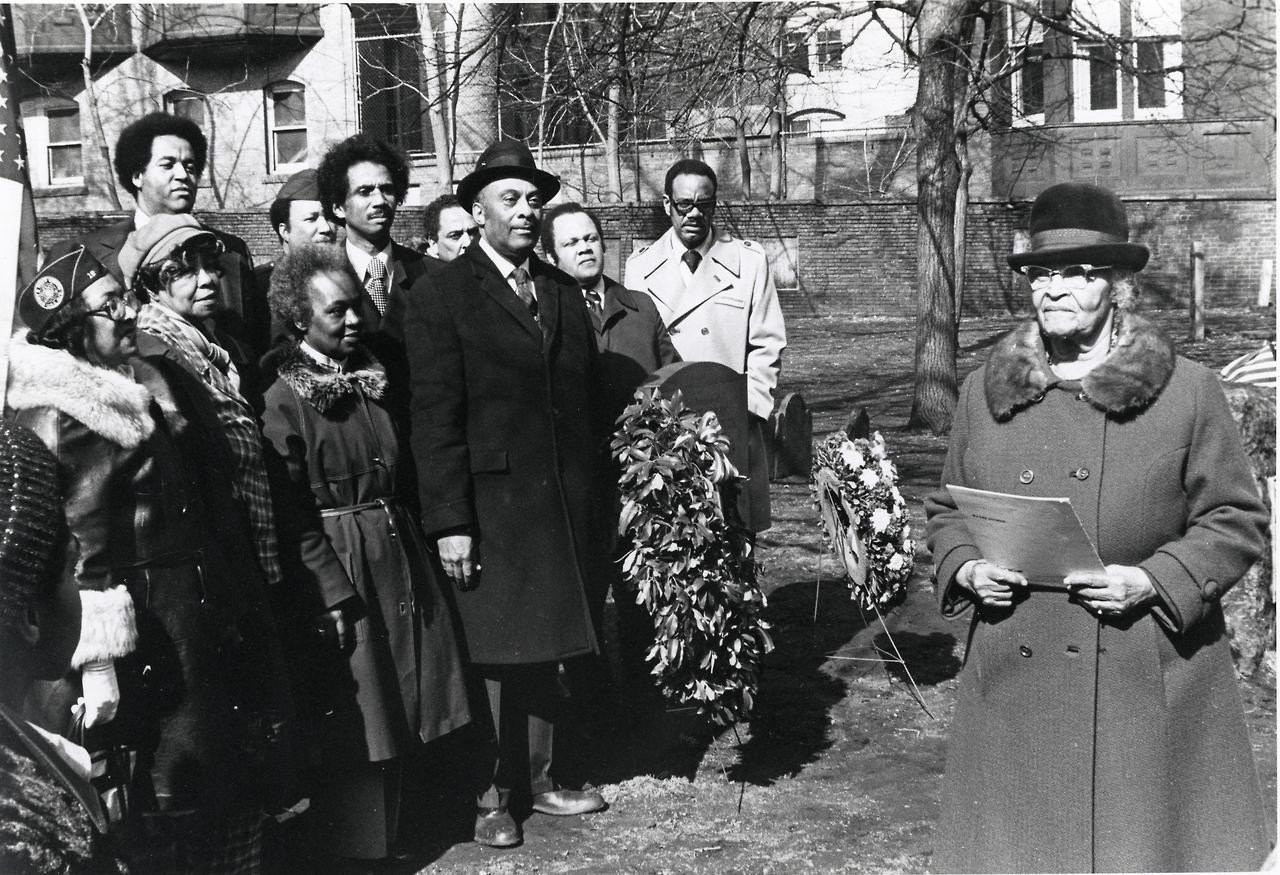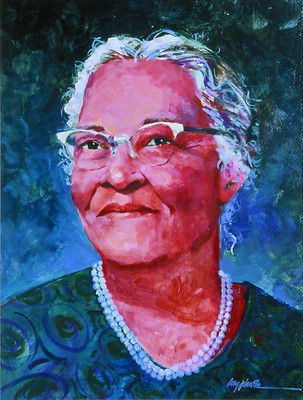Women's History Month - with Margaret Dunkle and Melnea A Cass
March is National Women’s History Month
In 1987 the US Congress designated March as National Women’s History Month. This creates a special opportunity in our schools, our workplaces, and our communities to recognize and celebrate the often-overlooked achievements of American women. Each year there is a special Theme and women whose lives exemplify that theme
Honoring Women Who Fight All Forms of Discrimination Against Women
National Women’s History Project’s 2018 Honoree
Margaret Dunkle
 Margaret Dunkle played a key role in implementing Title IX, the law that transformed education for women and girls, from athletic fields to graduate schools. Her groundbreaking 1974 report documenting discrimination against female athletes became the blueprint for the Title IX regulations on athletics.
Margaret Dunkle played a key role in implementing Title IX, the law that transformed education for women and girls, from athletic fields to graduate schools. Her groundbreaking 1974 report documenting discrimination against female athletes became the blueprint for the Title IX regulations on athletics.
Dunkle joined the Association of American College’s Project on the Status and Education of Women in 1972. Three years later, she became the first Chair of the National Coalition for Women and Girls in Education, which led the successful fight for strong Title IX rules.
In the 1980s, she documented widespread discrimination against pregnant and parenting students. As Director of the AAUW Educational Foundation, she commissioned the landmark 1992 study, How Schools Shortchange Girls.
Dunkle conceived 1986 legislation that enabled low-income women to receive student aid without losing health insurance for their children. While President of the Federation of Organizations for Professional Women, she worked with Senator Edward Kennedy on the 1980 Science and Technology Equal Opportunities Act.
Dunkle turned her focus to child development in the 2000s, when a family member was vaccine-injured, sustaining a brain injury and developmental disabilities. She led successful 2007 efforts to require accurate developmental screening in Head Start programs and partnered with federal policymakers to ensure insurance reimbursement for such screenings. She recently retired after serving as Lead Research Scientist at George Washington University’s Department of Health Policy.
She spearheaded 2015 efforts to honor forgotten civil rights heroine, Harriet Elizabeth Brown. In 1937, Brown, represented by 29-year-old NAACP attorney Thurgood Marshall, successfully fought for equal pay for African-American teachers in rural Maryland. Dunkle’s Task Force implemented three recommendations: naming a community center and stretch of state highway in Brown’s honor and commissioning a courthouse portrait.
Margaret Dunkle’s honors include induction into the Maryland Women’s Hall of Fame, and receiving the American Academy of Pediatrics’ Dale Richmond Award, Maryland’s William Donald Schaefer Helping People Award, First 5 Los Angeles’ Champion for Children Award, and Vice President Gore’s Hammer Award. Her papers are held at Harvard University’s Schlesinger Library.
Boston Women’s History Trail
Melnea A. Cass (1896-1978)
 Melnea Cass Boulevard in Lower Roxbury is named for one of Boston’s most beloved and effective advocates for African Americans in Boston. She was relentless in her pursuit of educational and economic opportunities and racial justice for her community. Known as the “First Lady of Roxbury,” Melnea Cass’s activities ranged from volunteering on committees, serving on boards, and accepting city-appointed commissions, to giving money to students who graduated from school. Born in Richmond, Virginia in 1896, Melnea Agnes Jones’s father worked as a janitor, her mother as a domestic worker. Melnea’s father wanted a better life for his children, including a proper education, so he moved the family to Boston’s South End when Melnea was five years old.
Melnea Cass Boulevard in Lower Roxbury is named for one of Boston’s most beloved and effective advocates for African Americans in Boston. She was relentless in her pursuit of educational and economic opportunities and racial justice for her community. Known as the “First Lady of Roxbury,” Melnea Cass’s activities ranged from volunteering on committees, serving on boards, and accepting city-appointed commissions, to giving money to students who graduated from school. Born in Richmond, Virginia in 1896, Melnea Agnes Jones’s father worked as a janitor, her mother as a domestic worker. Melnea’s father wanted a better life for his children, including a proper education, so he moved the family to Boston’s South End when Melnea was five years old.
Melnea looked for work as a salesgirl. Denied opportunities because she was African American, she took a position as a domestic worker until her marriage in 1917 to Marshall Cass, a soldier in the Army during World War I. Their first child, Marshall, was born while Marshall Sr. was away on duty; when Melnea’s husband returned from the war, the Cass's had two more children, Marianne and Melanie. Melnea Cass also became involved in her community as an activist. With her mother-in-law’s encouragement, when women achieved the right to vote in 1920 Melnea helped organize African American women to register and cast their first vote. At the same time, she encountered William Monroe Trotter, one of Boston’s most militant civil rights activists. Melnea Cass was deeply influenced by his lectures, protest meetings, and his newspaper, The Guardian. She joined the NAACP and volunteered what time she could while raising her children.
By the 1930s, Melnea Cass was a force for positive change in Roxbury. She volunteered her services for the Robert Gould Shaw House, a local settlement house and community center named. She founded the Kindergarten Mothers to encourage early education. She contributed her time and talent to the Pansy Embroidery Club, the Harriet Tubman Mothers’ Club, and the Sojourner Truth Club. She worked in the Northeastern Region of the National Association of Colored Women’s Clubs as a secretary and helped form the Boston chapter of the Brotherhood of Sleeping Car Porters, a national organization that developed and sustained African American communities all over the country.
 In 1950 Boston Mayor John Hynes appointed Melnea Cass as the only woman charter member of the anti-poverty agency Action for Boston Community Development (ABCD), which assisted people who lost their homes to urban renewal efforts. From 1962 to 1964, she served as president of the Boston branch of the National Association for the Advancement of Colored People (NAACP) and organized demonstrations against the Boston School Committee’s policy of segregation. In 1966, Governor John Volpe declared May 22 Melnea Cass Day in honor of her 70th birthday and years of volunteerism. More than 2,000 people joined the celebration. In 1968, the Governor dedicated the Melnea Cass Metropolitan District Commission Swimming and Skating Rink in Roxbury to improve the lives of inner-city youth. From 1975 to1976, Melnea Cass was chair of the Massachusetts Advisory Committee for the Elderly. During her lifetime, she received honorary degrees from Northeastern University (1969), Simmons College (1971), and Boston College (1975) prompting friends to call her “Dr. Cass.” She was also named “Massachusetts Mother of the Year” and a “Grand Bostonian.”
In 1950 Boston Mayor John Hynes appointed Melnea Cass as the only woman charter member of the anti-poverty agency Action for Boston Community Development (ABCD), which assisted people who lost their homes to urban renewal efforts. From 1962 to 1964, she served as president of the Boston branch of the National Association for the Advancement of Colored People (NAACP) and organized demonstrations against the Boston School Committee’s policy of segregation. In 1966, Governor John Volpe declared May 22 Melnea Cass Day in honor of her 70th birthday and years of volunteerism. More than 2,000 people joined the celebration. In 1968, the Governor dedicated the Melnea Cass Metropolitan District Commission Swimming and Skating Rink in Roxbury to improve the lives of inner-city youth. From 1975 to1976, Melnea Cass was chair of the Massachusetts Advisory Committee for the Elderly. During her lifetime, she received honorary degrees from Northeastern University (1969), Simmons College (1971), and Boston College (1975) prompting friends to call her “Dr. Cass.” She was also named “Massachusetts Mother of the Year” and a “Grand Bostonian.”
Three years after her death in 1981, the City of Boston opened Melnea Cass Boulevard. The YWCA in Boston’s Back Bay is also named for Melnea Cass to acknowledge her tireless work for children, families, and career development.
Melnea Cass’s motto in life: “If we cannot do great things, we can do small things in a great way.”**
* Boston Women’s Heritage Trail, Biographies- Melnea Cass






